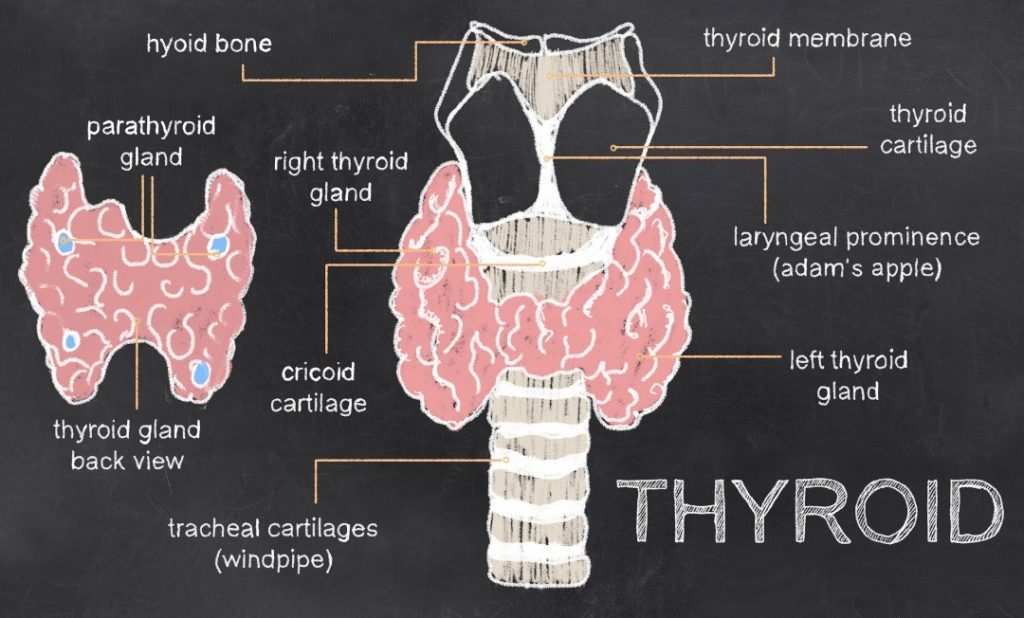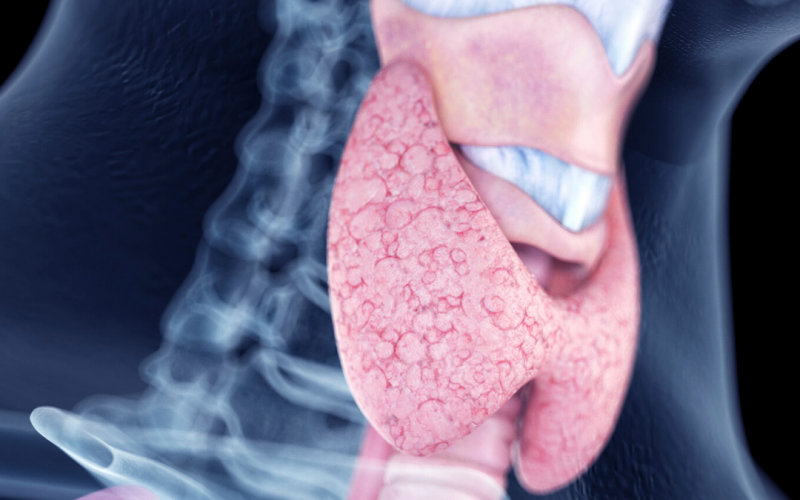Thyroid disorders are far more common than many people realise. Around 1 in 20 people live with a thyroid condition, some temporary and some lifelong.
Although anyone can be affected at any age, including children and babies, thyroid issues are prevalent in women, often emerging during times of hormonal change, such as after pregnancy or around menopause.
Why Thyroid Problems Often Go Unnoticed
Thyroid symptoms are often subtle and easily mistaken for other issues like stress, menopause, or simply ageing. However, left untreated, thyroid conditions can significantly affect long-term health and quality of life.
So, how do you know what to look for?
The Thyroid Gland: Small but Mighty
The thyroid is a small, butterfly-shaped gland at the base of your neck. Despite its size, it plays a significant role in your well-being. As part of your endocrine system, it produces hormones that regulate metabolism — your body’s energy system.
The thyroid makes three main hormones:
- T4 (thyroxine)
- T3 (triiodothyronine)
- Calcitonin
These hormones regulate heart rate, body temperature, energy levels, and the body’s utilisation of nutrients.
 What Can Go Wrong?
What Can Go Wrong?
Thyroid conditions typically fall into two categories:
- Hypothyroidism – underactive thyroid (too little hormone)
- Hyperthyroidism – overactive thyroid (too much hormone)
Common non-cancerous thyroid disorders include:
- Hashimoto’s disease: a leading cause of hypothyroidism
- Graves’ disease: a common cause of hyperthyroidism
- Goitre: an enlarged thyroid
- Thyroiditis: inflammation of the thyroid
- Thyroid nodules: usually benign lumps on the thyroid
- Subclinical hypothyroidism: mild thyroid underactivity that may not cause noticeable symptoms
Thyroid issues are common in women, especially in midlife, and are often mistaken for menopause, meaning the real cause goes unnoticed. Fatigue, weight gain, and mood changes are typical during perimenopause and postmenopause, but they are also classic signs of an underactive thyroid. If you are noticing these along with:
- Dry skin or brittle hair
- Constipation
- Brain fog
- Unexplained weight gain
- Low mood or sluggishness
It is advisable to consult your doctor.
The Good News
A simple blood test can check your thyroid function. If needed, treatment for hypothyroidism usually involves a daily tablet called Levothyroxine. Untreated thyroid issues can increase the risk of:
- High cholesterol
- High blood pressure
- Heart disease
If you’ve noticed ongoing changes in your energy, mood, or metabolism, it may be time for a checkup. Thyroid conditions are common and treatable but often go unnoticed for too long. A simple blood test can offer answers, and treatment can make a real difference. Don’t wait for things to get worse. Book a checkup and take that step toward feeling like yourself again.
Related Posts in This Series:
- Part 1: Thyroid Disorders – The Inside Scoop
- Part 2: Hypothyroidism and Hashimoto’s Disease
- Part 3: Hyperthyroidism
- Part 4: Subclinical Hypothyroidism Explained (this post)







